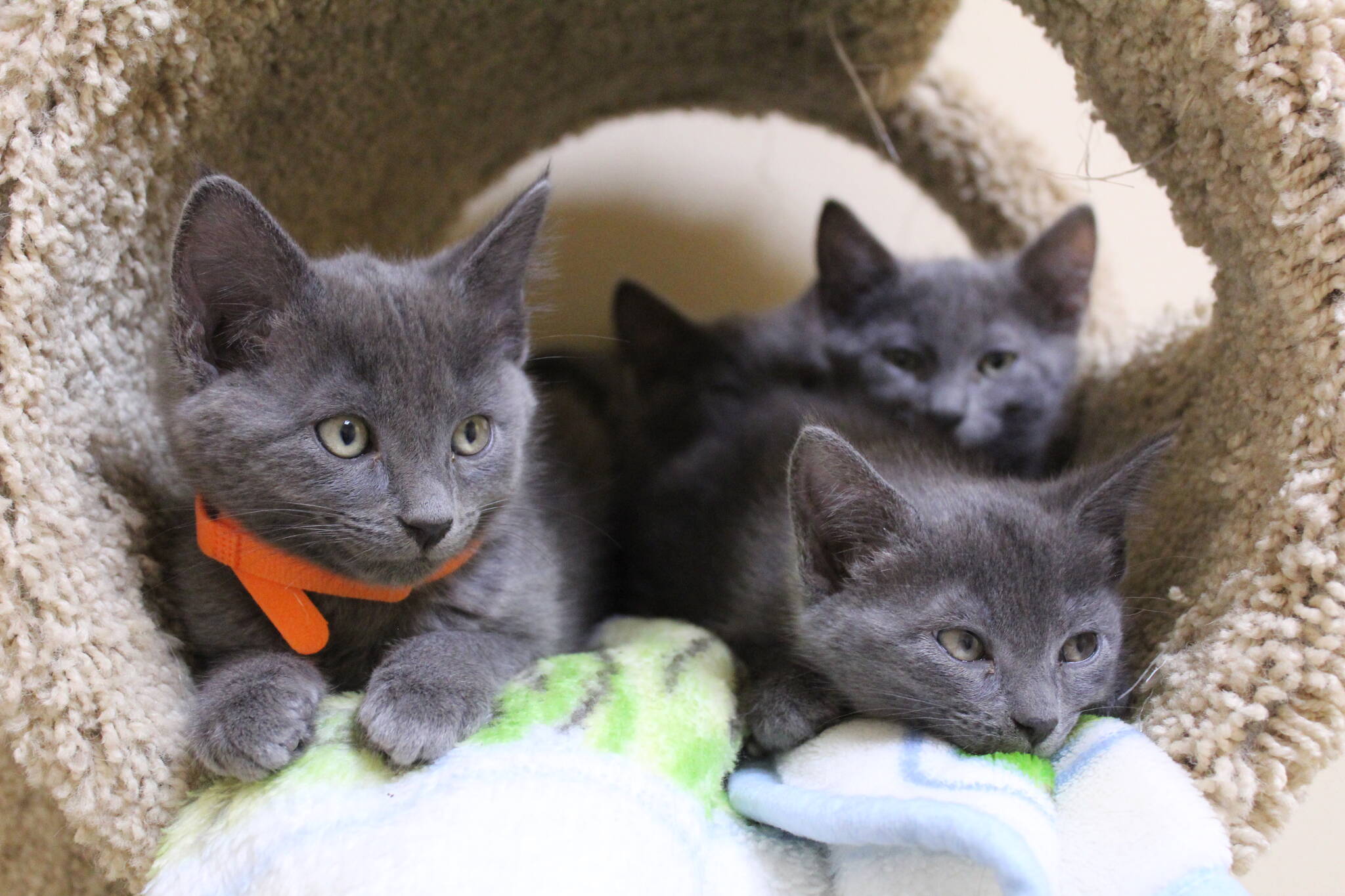Kittens and puppies arriving in large numbers at WAIF animal shelter are in need of temporary homes.
The Coupeville-based shelter is searching for foster homes where animals 8 weeks and younger can be housed and cared for until they’re old enough to be adopted.
Community outreach and volunteer coordinator Tré Frampton said the shelter’s foster program is still in its infancy and is in need of both new and experienced fosters.
Fostering a kitten or puppy — or a litter of kittens or puppies, sometimes with their mother — entails providing a safe environment for them to grow during the early weeks of their lives. For animals without a mother, this includes feeding them every three hours. Frampton said foster homes should have at least one person who is home during the day to keep an eye on the animals.
Foster animals return to the shelter at 8 weeks old, where they will be spayed or neutered and become eligible for adoption.
WAIF provides training for fosters and all the equipment needed to care for the animals, such as food and litter boxes.
During this time of year, WAIF sees an uptick in the number of baby animals, mostly kittens, coming through the shelter. Frampton said WAIF receives around 100 kittens and puppies every year during this season.
This number will typically drop off around July, then pick up again in the late summer and early autumn.
Frampton, who is currently fostering a puppy, said that fostering is hard work but very rewarding. Fostering is good for puppies and kittens because it allows them to receive more individual attention than is possible at a packed and busy shelter and keeps them safe from illnesses or infections that other animals might bring into the shelter as they arrive.
Fostering also helps young animals become socialized and get accustomed to being around humans. Freeland Cat Cottage volunteer Judy Dewing said that it is important for fosters to spend as much time with their animals as possible for this purpose.
Dewing has fostered more than 100 kittens over the last 15 years, then brought them back to the cat cottage where she sees them adopted into loving homes — though she admitted it is still difficult to give them up.
“Watching the progression of their growth is just so rewarding,” she said.
Frampton added that sending kittens and puppies who are too young to be adopted to foster homes frees up space so that WAIF can take in and care for more animals in need.
“At the end of the day, that’s all we’re trying to do,” he said. “We’re just trying to help as many animals as we can.”
Anyone interested in fostering an animal can sign up as a volunteer at waifanimals.org and indicate an interest in fostering on the application.



